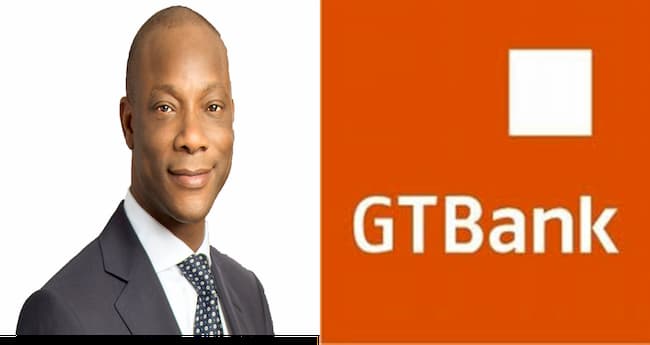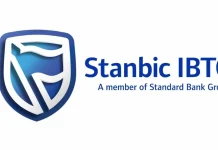Guaranty Trust Bank Plc, aka, GTBank, has revealed that the three businesses it plans to kick off with in its holding company (HoldCo) are payment, assets management, and PFA.
BizWatchNigeria recalls that the bank obtained regulatory approval in principle for the switch as it plans to join some of its peers in the banking sector to diversify its financial services which it anticipates would protect it from future headwinds.
This was sequel to a regulation in 2011 which allowed several banks, including UBA Group, First City Monument Bank (FCMB), Stanbic IBTC Bank, and FirstBank to adopt the HoldCo structure, giving them the liberty to own majority shares in other companies, and can, therefore, control such companies’ decisions and over their management decisions.
Unveiling plans for its new status, the Managing Director/Chief Executive Officer, GTBank, Segun Agbaje, said it plans to go into opportunities open in the payment system, asset management, pension fund administration (PFA), and any other area that will enable it to add value to all stakeholders in terms of higher dividend and higher return on investment (RoI).
READ ALSO: FG Will Regulate, Not Ban Social Media – Lai Mohammed
Admitting that the journey won’t be an easy one in view of the inherent challenges in running a HoldCo, Agbaje insisted that the much-touted higher costs associated with such an expanded structure are mostly “exaggerated”.
“The three businesses that we are going to kick off with are payment, assets management, and PFA. The second thing about cost is that I think that it is exaggerated. When we look at what we are going to do, which I did not tell you about, when you go to a holding company structure, the first thing you will do is to reduce the size of your Board,” he said.
“If you have more business and you have 15 people on the Board and you are going into a holding company’s structure and different business units, you don’t with the same amount of people, so what we will try and do is to make sure that the Board sizes don’t change significantly by reallocating some of it.
“The second thing is that when people talk about holding company costs, the real holding company costs are the employees of the holding company. At the height of it is moving a holding company because we have done a lot of work on this.
“The max you’ll find is 90 people, so your holding company cost is really 90 people, but it’s not really 90 people, because you’ll also take some of the employees in the existing business units into the holding company. So your additional cost might be 60 employees, and when you think of the cost of 60 employees vis-à-vis potential income from three other businesses, it’s really not much if you run it properly.”
Specifically, Agbaje disclosed that the new ventures will be a cocktail of Greenfields and acquisitions depending on the costs adding that rather than shrinking staff strength, he envisages that the HoldCo will open up more job opportunities in the new business units the bank plans to venture into.
He said: “The payment business will be Greenfield, and the asset management and PFA will be by acquisition. But if the costs of the acquisitions are too high, we would rather go Greenfield.”
READ ALSO: NB, WAPCO, BOCGAS Advances Nigerian Stock Exchange Market
Under the payment services, the bank would undertake agreed transactions through cash, cheques, debit/credit cards, and mobile/electronic payment channels for the exchange of goods and services.
In the area of asset management it will typically develop, operate, maintain, and sell individual/corporate assets in a cost-effective manner, while under the PFA, it is expected to manage and invest the pension funds in employees’ Retirement Savings Account (RSA).
In all of these ventures and others, and irrespective of the existing competition, Agbaje expressed the confidence that GTBank will leverage its existing 21 million customer base “to break even very quickly, and in the next five years, will add significant value to shareholders.
“These will then show that migrating to a Holding Company was the right move, and needed to be done to unlock more value for shareholders and make life easier for them.”
Besides obtaining the final approval from the Central Bank of Nigeria (CBN), Agbaje sees the type and nature of technology deployment for the new ventures as a major challenge, especially in the payment space, which would require different tools from the regular banking operations.
He also clarified that diversification into new areas by no means implies that opportunities in banking have been exhausted, on the contrary, he said the system has barely scratched the financial inclusion segment, saying that it could only be described as a success when it records at least 100 million account holders, adding that the HoldCo would further boost achievement in this area.
He added that the Shared Agent Network Expansion Facility (SANEF), a CBN initiative, supported by Deposit Money Banks (DMBs), Nigeria Inter-Bank Settlement Systems (NIBSS), and Licensed Mobile Money Operators/Shared Agents, has helped to deepen financial inclusion in Nigeria.













